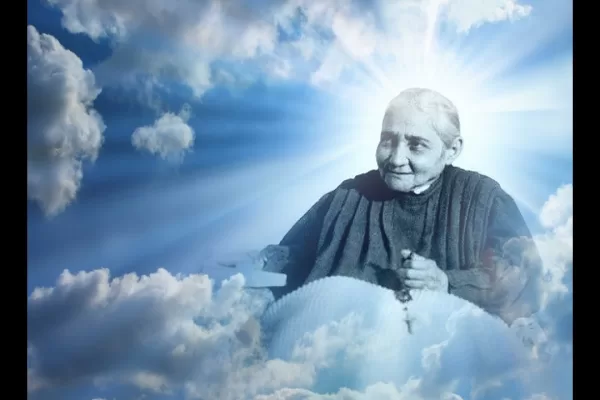
The process of beatification of Luisa Piccarreta
The process of beatification 1994: The Vatican gave “Non Obstare” to Mons. Carmelo Cassati, Archbishop of Trani-Barletta-Bisceglie to start the cause of beatification and Luisa Piccarreta automatically became a Servant of God. (Before a bishop can begin an investigation of any person’s Cause of Beatification he must first obstain permission from the Vatican, otherwise known as the Holy See. The Congregation for the Causes of Saints grants this permission on behalf of the Holy See only after consulting all the other appropriate Curial offices of the Vatican to determine whether there are any objections to the candidate’s cause proceeding. Following this requirement the Most Reverend Carmelo Cassati, Archbishop of Trani-Barletta-Bisceglia, the archdiocese in which Luisa died, sought permission from the Vatican to proceed with her Cause. By way of an official letter dated February 24, 1994, the Congregation for the Cause of Beatification of Saints declared, “on the part of the Holy See the Non Obstare for the opening of the Cause of Beatification of the Servant of God, Luisa Piccarreta.” ) November 20, 1994: The cause of beatification was opened officially on the Feast of Christ the King. January 1996: Then Cardinal Ratzinger (now Pope Benedict XVI) released 34 volumes of the Book of Heaven to Archbishop Cassati as part of the protocol for process of Luisa’s Cause of Beatification. March 1997: On the occasion of the 50th anniversary of Luisa’s death, it was announced publicly that the Tribunal Responsible for Luisa’s Cause had determined unanimously that her life was one of heroic virtue and that her mystical experiences were authentic. October 28, 2005: The cause of beatification was officially concluded at the diocesan phase. November 7, 2005: All the official documents were transferred to the Vatican. March 7, 2006: Congregation for the Causes of Saints opened the box (started the cause) officially. 2008: Congregation for the Causes of Saints appointed two independent, highly qualified theologians – Fr. Antonio Resta, President of the Pontifical Theological Seminary in Italy; Fr. Cosimo Reho, dogmatic theologian – to review Luisa’s writings. End of 2009: one of two theologians gave his positive judgment. July 19, 2010: the other theologian gave his positive judgment. “Positive judgment” means that there are no teachings in Luisa’s writings contrary to Catholic Faith and Moral. It also means that the Church recognizes the legitimacy and authenticity of her writings. Significance of Imprimatur · Ecclesiastical permission, expressed only with the word imprimatur, means that the work is free from errors regarding Catholic faith and morals. · Approval granted by competent authority shows that the text is accepted by the Church or that the work is in accordance with the authentic doctrine of the Church (can. 661). · As Cardinal Joseph Ratzinger explained when he was head of the Congregation of the Doctrine of the Faith: “Ecclesiastical approval of a private revelation has three elements: the message contains nothing contrary to faith or morals; it is lawful to make it public; and the faithful are authorized to accept it with prudence.” · Although the Imprimatur and Nihil Obstat may be given by the local bishop for his diocese, one ought not to lose sight of the fact that these official seals, though given locally and within one diocesan jurisdiction, customarily transcend juridical boundaries by virtue of episcopal collegiality and their acceptance by other bishops the world over. · The fact that bishops can issue Imprimaturs is a significant sign that they are acts of the Magisterium. (The archbishop of Trani gave his handwritten Imprimatur directly on those original manuscripts of Luisa.) What is Church’s stance on Luisa Piccarreta? · Since she has not yet been declared “Venerable” there is nothing that yet amounts to formal Vatican “approval” of Luisa’s writings. · Vatican’s current, official position on Luisa’s sanctity and her writings is neutral. The Catholic Church does not yet officially give them her full “approval,” but neither does she “condemn” them. · The Archbishop promoting Luisa’s Cause is doing so in strict accord with Canon Law and in complete harmony with Rome. This includes a careful and comprehensive review of Luisa’s writings by competent, independent experts in theology. · In summary, the record is entirely clear concerning the writings of Luisa. Anyone can read them with a clear conscience and be completely at peace.